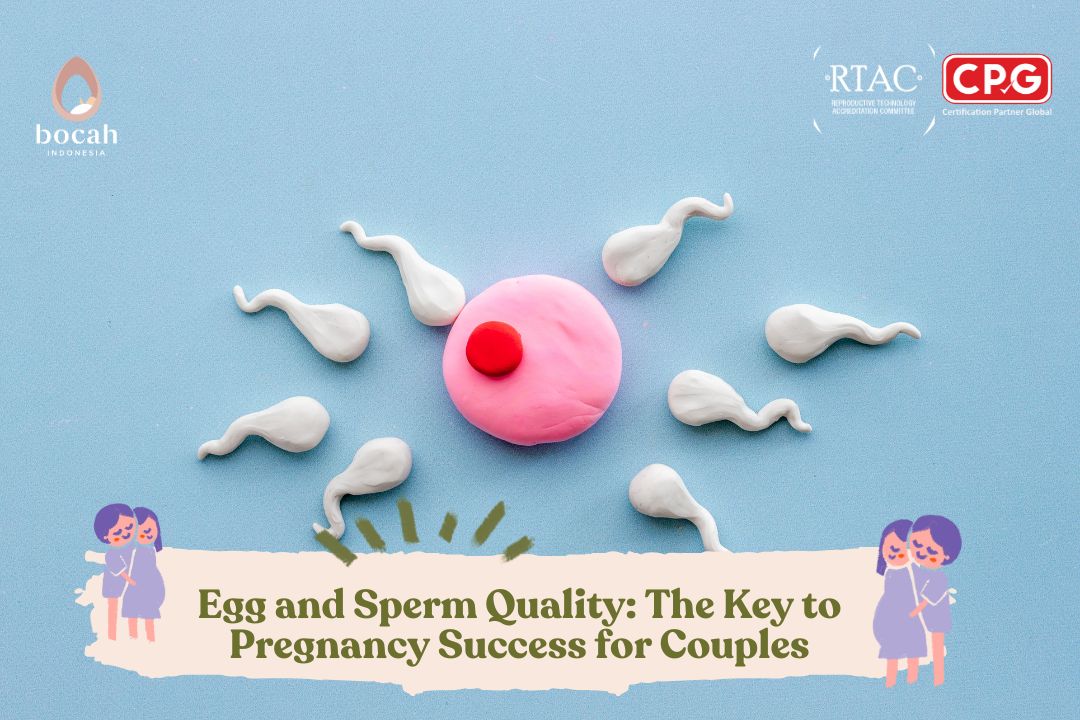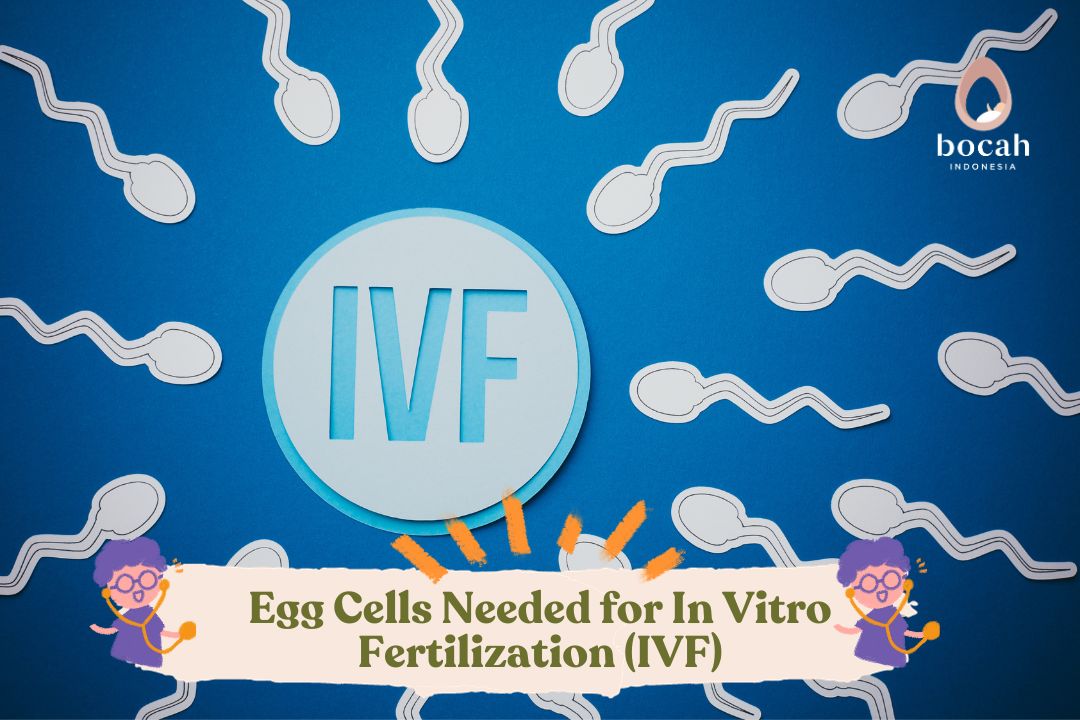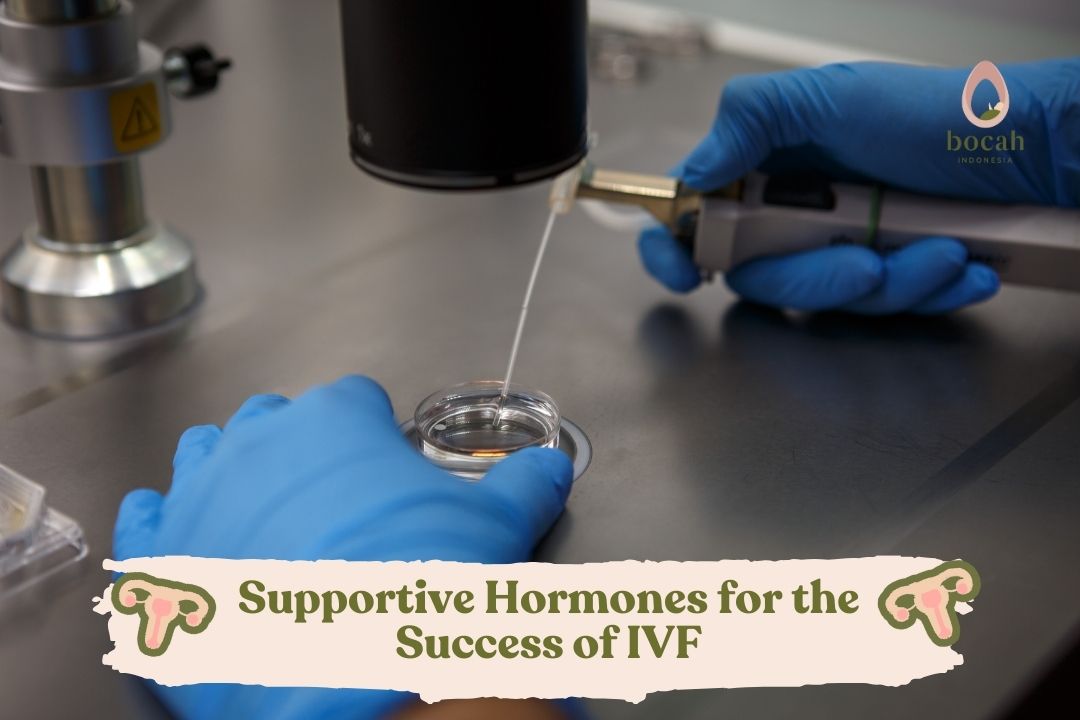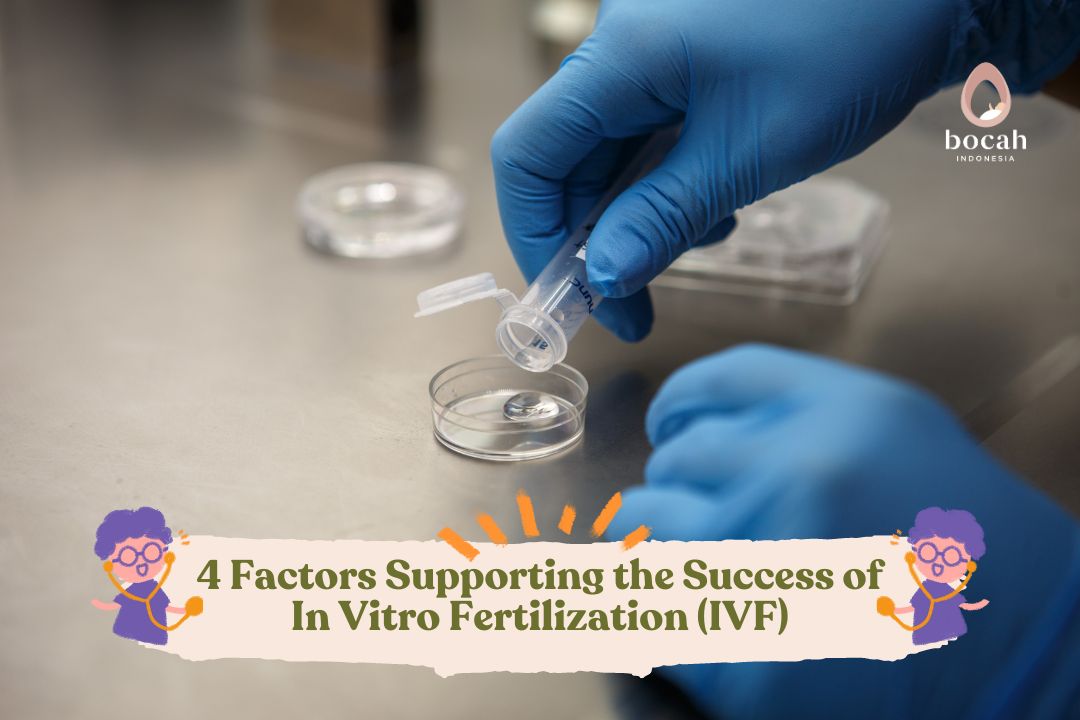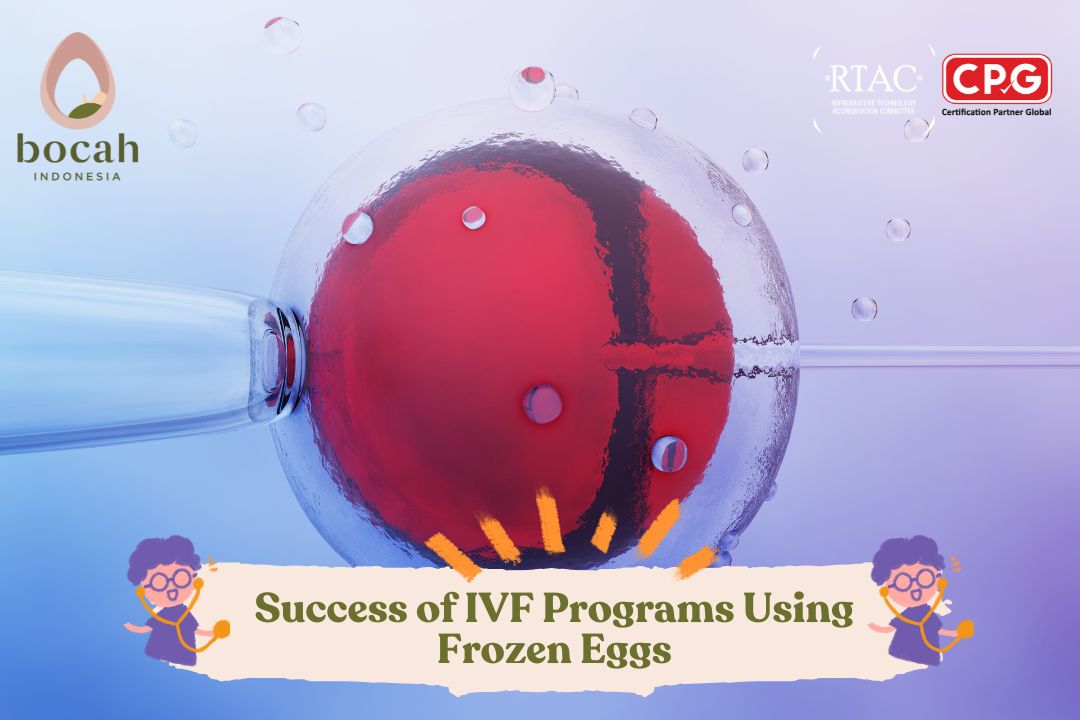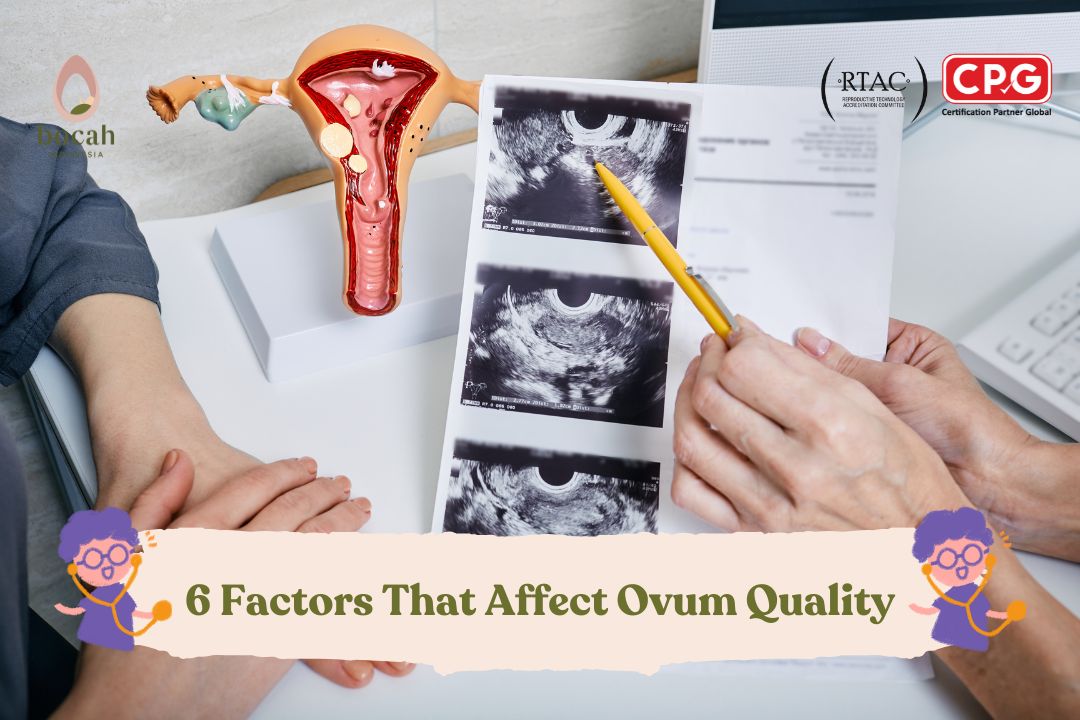How to Improve Egg Quality for IVF Success
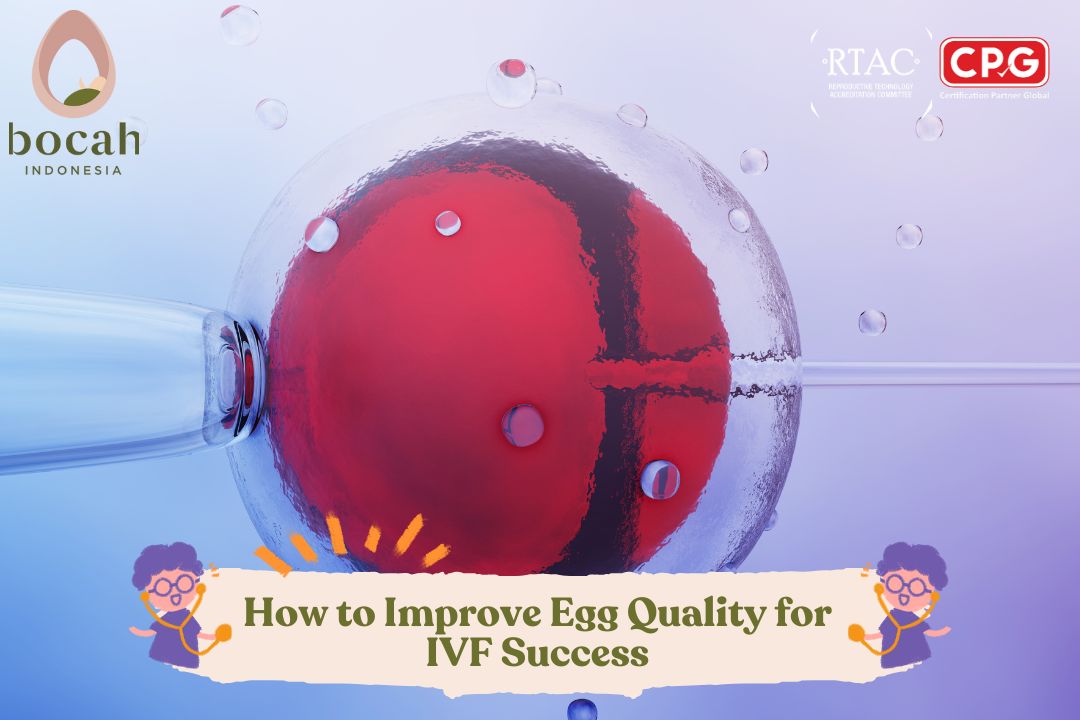
Ovarian health is a key factor that significantly impacts the success of the IVF program you are planning. Healthy ovaries produce high-quality eggs, which are crucial for fertilization and embryo development. Without healthy eggs, the chances of IVF success may decrease, as egg quality greatly determines whether the embryo can survive and develop after fertilization. Therefore, preparing your ovarian health before undergoing IVF is a vital step. Here are some ways to improve egg quality that you should know before starting your IVF journey.
Difference Between Healthy and Unhealthy Eggs
Healthy or mature eggs have good genetic quality and are suitable for fertilization by sperm, allowing them to develop into a strong embryo. On the other hand, immature eggs can reduce your chances of pregnancy, increase the risk of miscarriage, or lead to birth defects. Here’s the difference between healthy and unhealthy eggs, as well as factors that cause eggs to be immature.
Healthy Eggs:
-
Good Genetic Quality
Healthy eggs have intact and undamaged genetic material (DNA). This is essential so that when sperm fertilizes the egg, the genetic combination from both parents can form a properly developing embryo. Good DNA enables optimal embryo development after fertilization, increasing the chances of a successful pregnancy. -
Normal Size and Shape
Healthy eggs have a normal size and shape, which facilitates the fertilization process, allowing sperm to penetrate the protective layer of the egg and fertilize the egg’s nucleus. -
Hormonal Balance
Balanced hormones, especially estrogen and progesterone, support ovulation and ensure that the egg is ready for fertilization. These hormones also play a role in preparing the uterine lining for embryo implantation and development.Tanya Mincah tentang Promil?
-
Good Nutritional Support
Healthy eggs exist in an ovarian environment that supports them with adequate nutritional intake. These nutrients are important to ensure the early development of the embryo after fertilization. -
Ideal Age
Eggs produced at a reproductive age (typically under 35 years old) tend to be healthier because eggs in younger women have a better chance of being fertilized and leading to a successful pregnancy.
Unhealthy Eggs:
-
Genetic Damage
Unhealthy eggs may have damaged genetic material. This is common in eggs from older women, as egg quality declines with age. Eggs with genetic damage are at a higher risk of causing miscarriage or genetic disorders in the fetus. -
Abnormal Size or Shape
Unhealthy eggs may have abnormal sizes or shapes. Too small or too large eggs can hinder the fertilization process, preventing sperm from penetrating the protective layer of the egg. -
Hormonal Imbalance
If you have hormonal imbalances, the eggs produced may not be mature or of good quality. For example, hormones that are too low or too high can disrupt the ovulation process, leaving the eggs unprepared for fertilization. -
Poor Ovarian Environment
Unhealthy eggs are often found in ovaries that are not supportive, such as in cases of health issues like PCOS, endometriosis, or other disorders. A disrupted ovarian environment can affect the development and quality of eggs. -
Age Factor
As women age, egg quality declines. Eggs produced after the age of 35 tend to be less healthy, as the number of mature eggs decreases, and the risk of genetic issues increases.
Tips to Maintain Egg Quality
For those planning pregnancy or undergoing fertility programs (IVF), maintaining healthy eggs is crucial. Here are some ways to avoid egg complications and improve your chances of pregnancy by keeping your eggs in optimal condition:
1. Maintain a Healthy Diet
Your diet plays a significant role in egg health. Consume foods rich in antioxidants such as fruits, vegetables, nuts, and seeds. Antioxidants help fight free radicals that can damage eggs. Also, foods high in protein, healthy fats (like omega-3), and vitamins such as folic acid, vitamin D, and vitamin E are important for supporting egg quality.
2. Avoid Excessive Stress
Stress can impact the hormonal balance required for ovulation and egg production. Therefore, it’s important to manage your mental and emotional health. Try to set aside time for relaxation, meditation, or activities that make you feel calm, such as yoga or walks in nature.
3. Exercise Regularly
Regular physical activity, such as walking, cycling, or swimming, can help maintain an ideal body weight and increase blood flow to the ovaries. However, avoid excessive exercise that can lead to stress, as it could disrupt the ovulation cycle. Engage in light to moderate physical activities consistently.
4. Avoid Smoking and Alcohol
Smoking and excessive alcohol consumption can negatively impact egg health. Chemicals in cigarettes can damage the ovaries and reduce both the quality and quantity of eggs. Alcohol can also disrupt hormonal balance, which is vital for healthy ovulation.
5. Maintain an Ideal Weight
Being overweight or underweight can affect ovulation and egg quality. Excess or insufficient body fat can disrupt the balance of estrogen, which is essential for egg production. Aim to achieve and maintain a healthy weight through a balanced diet and regular exercise.
6. Reduce Exposure to Harmful Chemicals
Exposure to harmful chemicals from the environment, such as pesticides, toxic household cleaning products, or harsh cosmetic chemicals, can affect reproductive health. Whenever possible, choose natural products and avoid unnecessary chemical exposure.
7. Regular Check-ups with Your Doctor
If you have a history of ovulation disorders or other health issues like PCOS or endometriosis, it’s important to have regular check-ups with your doctor. Your doctor will help monitor your ovarian condition and provide advice and treatment to maintain optimal reproductive health.
8. Get Enough Rest
Lack of sleep can affect hormonal health and disrupt ovulation cycles. Aim to get 7-9 hours of sleep each night. Sufficient rest helps the body repair itself and maintain hormonal balance, including those related to ovulation and egg production.
9. Consider Fertility Supplements
If necessary, your doctor may recommend supplements that can help improve egg quality, such as folic acid, vitamin D, or Coenzyme Q10. However, make sure to consult your doctor before starting any supplements.
By maintaining a healthy lifestyle, reducing stress, and having regular check-ups, you can reduce the risk of egg complications and increase your chances of IVF success.
Source:
- Rosner, J., Smardzic, T., & Sarao, M. (2022). NCBI Bookshelf. Physiology, Female Reproduction.
- Moghadam, et al. (2021). Oocyte Quality and Aging. JBRA Assisted Reproduction, 26(1), pp. 105–122.
- American College of Obstetricians and Gynecologist (2023). Having a Baby After Age 35: How Aging Affects Fertility and Pregnancy.
- Lewis, R. Healthline (2023). How Many Eggs Are Women Born With? And Other Questions About Egg Supply.
- KidsHealth, Nemours (2019). Female Reproductive System.


